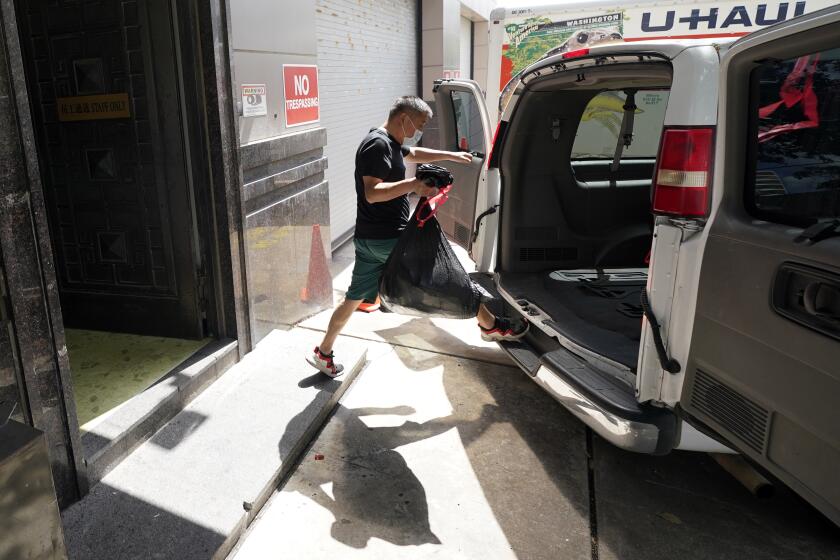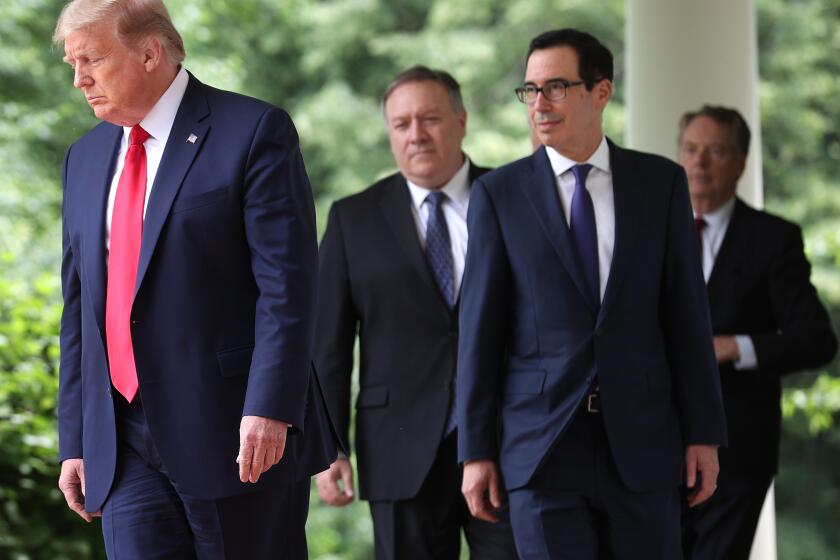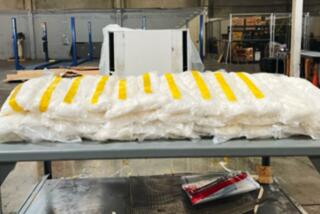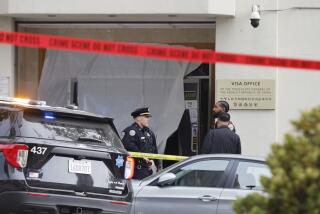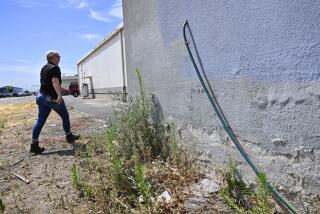Chinese scientist was arrested after leaving San Francisco consulate to seek medical care
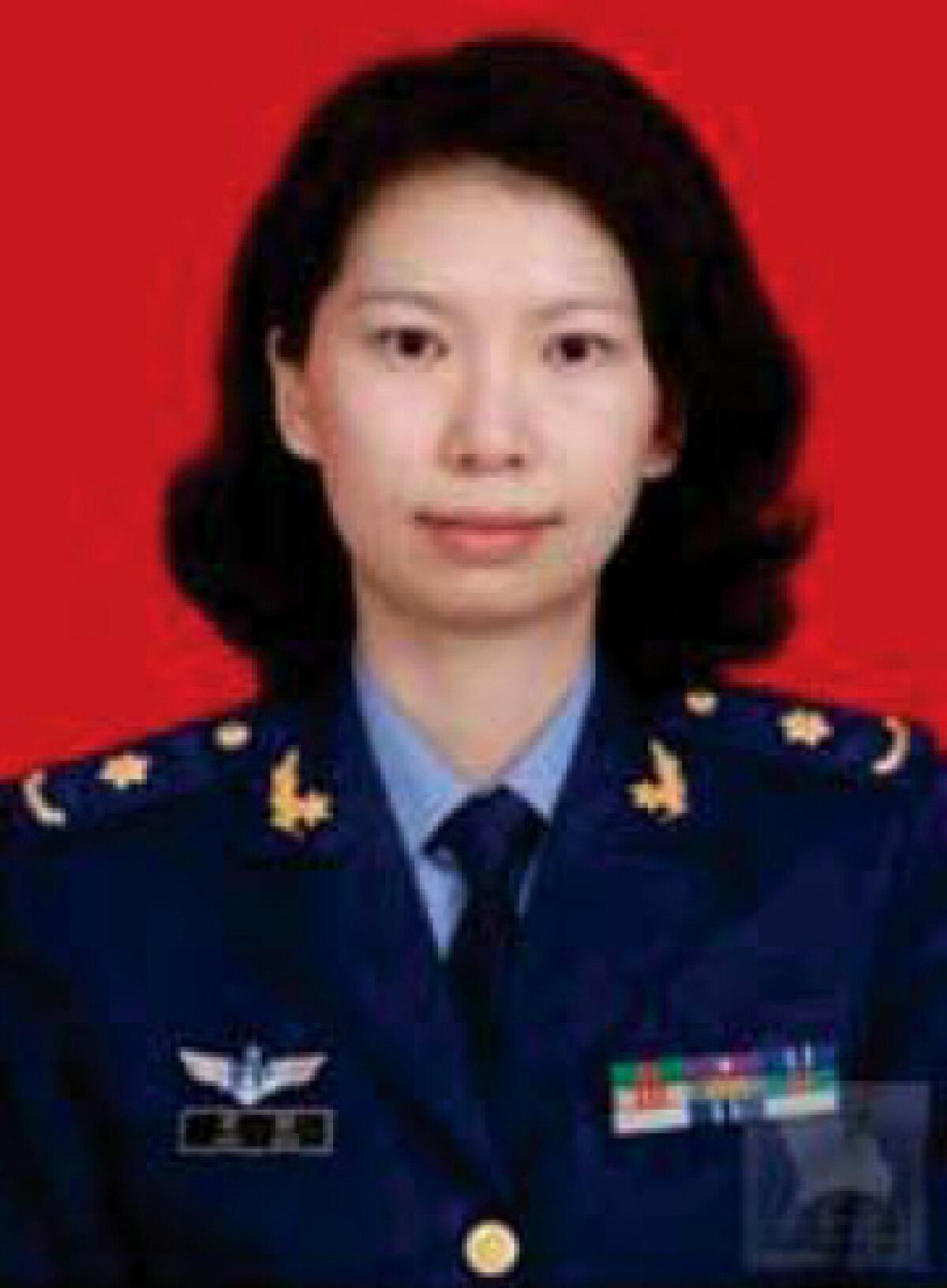
- Share via
SAN FRANCISCO — A Chinese scientist charged with visa fraud after U.S. authorities said she concealed her military ties was arrested after she left the Chinese consulate in San Francisco to seek medical care for her asthma, court documents show.
Juan Tang, who has a doctorate in cellular biology, entered the U.S. on Dec. 27 to work at UC Davis as a visiting researcher in the department of radiation oncology, Alexandra Negin, an assistant federal public defender, said in a filing Wednesday asking the court for her release on bail.
A hearing on whether Tang, 37, should be released on bail is scheduled Friday. She is being held at a Sacramento County jail on behalf of federal authorities after her arrest last week.
Tang and three other scientists living in the U.S. face charges of lying about their status as members of China’s People’s Liberation Army. All were charged with visa fraud, the Justice Department said.
Tang was the last of the four to be arrested after the Justice Department accused the Chinese consulate in San Francisco of harboring a known fugitive.
Negin said Tang went to the consulate to seek help and remained there after FBI agents questioned her at her Davis apartment on June 20 and executed a search warrant, seizing her passport and visa.
China has ordered the U.S. to close its consulate in the western city of Chengdu in response to the U.S. shutdown of the Chinese Consulate in Houston.
A criminal complaint was filed under seal June 26, but Tang did not learn she had been charged with a crime until her July 23 arrest, Negin wrote.
When U.S. agents went to the Chinese consulate to inform her there was a warrant for her arrest, Tang, who has asthma, wanted to surrender but was “in hysterics” and consulate employees believed she needed to see a doctor, the filing said.
Negin said she believes federal officers were surveilling the consulate and, after seeing Tang leave in a vehicle with consular staff, followed them to a medical office where “Ms. Tang was seen, medically cleared and then arrested.”
Negin wrote that Tang is not a danger to the community and could have remained in the consulate to avoid arrest. “Instead, she agreed to leave consulate property knowing this would allow law enforcement to arrest her,” she said.
Last week marked the end of U.S.-China engagement. The two powers may now be sliding toward a severance of relations and even outright military conflict.
Tang is married and has an 8-year-old daughter who is in China with Tang’s husband.
Tang left the family home at 18 to attend college and is a cancer researcher who had never traveled outside China before coming to the U.S. to do cancer research as part of a one-year program, Negin said.
Negin said Tang left her job in June as a visiting researcher at UC Davis’ Department of Radiation Oncology because her lab was closed during the COVID-19 pandemic. She planned to return to China.
Agents found photographs of Tang in a uniform of the civilian cadre of China’s PLA and also reviewed articles from China that identified her military affiliation.
Breaking News
Get breaking news, investigations, analysis and more signature journalism from the Los Angeles Times in your inbox.
You may occasionally receive promotional content from the Los Angeles Times.
But Negin argued that the evidence against Tang is based on old photographs from when she was a student at a medical school run by the military and documents that were translated on apps.
“That does not mean that she was ‘in the military,’” Negin wrote.
“She has every incentive to see this case through to its conclusion and return to China after the case is resolved,” Negin added.
More to Read
Sign up for Essential California
The most important California stories and recommendations in your inbox every morning.
You may occasionally receive promotional content from the Los Angeles Times.
